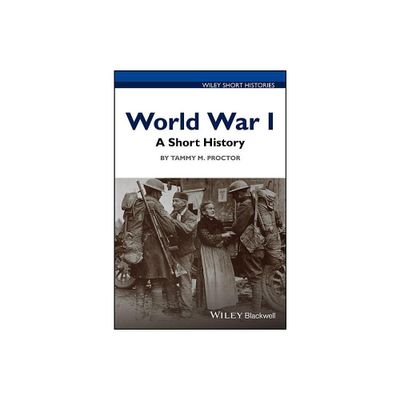Home
The Great Halifax Explosion: A World War I Story of Treachery, Tragedy, and Extraordinary Heroism
Loading Inventory...
Barnes and Noble
The Great Halifax Explosion: A World War I Story of Treachery, Tragedy, and Extraordinary Heroism
Current price: $27.99


Barnes and Noble
The Great Halifax Explosion: A World War I Story of Treachery, Tragedy, and Extraordinary Heroism
Current price: $27.99
Loading Inventory...
Size: Audiobook
*Product Information may vary - to confirm product availability, pricing, and additional information please contact Barnes and Noble
NATIONAL BESTSELLER
The "riveting" (
National Post
) tick-tock account of the largest manmade explosion in history prior to the atomic bomb, and the equally astonishing tales of survival and heroism that emerged from the ashes
“Enthralling. ... Gripping. ... A captivating and emotionally investing journey.” —
Pittsburgh Post-Gazette
After steaming out of New York City on December 1, 1917, laden with a staggering three thousand tons of TNT and other explosives, the munitions ship
Mont-Blanc
fought its way up the Atlantic coast, through waters prowled by enemy U-boats. As it approached the lively port city of Halifax,
's deadly cargo erupted with the force of 2.9 kilotons of TNT—the most powerful explosion ever visited on a human population, save for HIroshima and Nagasaki.
was vaporized in one fifteenth of a second; a shockwave leveled the surrounding city. Next came a thirty-five-foot tsunami. Most astounding of all, however, were the incredible tales of survival and heroism that soon emerged from the rubble.
This is the unforgettable story told in John U. Bacon's
The Great Halifax Explosion
: a ticktock account of fateful decisions that led to doom, the human faces of the blast's 11,000 casualties, and the equally moving individual stories of those who lived and selflessly threw themselves into urgent rescue work that saved thousands.
The shocking scale of the disaster stunned the world, dominating global headlines even amid the calamity of the First World War. Hours after the blast, Boston sent trains and ships filled with doctors, medicine, and money. The explosion would revolutionize pediatric medicine; transform U.S.-Canadian relations; and provide physicist J. Robert Oppenheimer, who studied the Halifax explosion closely when developing the atomic bomb, with history's only real-world case study demonstrating the lethal power of a weapon of mass destruction.
Mesmerizing and inspiring, Bacon's deeply-researched narrative brings to life the tragedy, bravery, and surprising afterlife of one of the most dramatic events of modern times.
The "riveting" (
National Post
) tick-tock account of the largest manmade explosion in history prior to the atomic bomb, and the equally astonishing tales of survival and heroism that emerged from the ashes
“Enthralling. ... Gripping. ... A captivating and emotionally investing journey.” —
Pittsburgh Post-Gazette
After steaming out of New York City on December 1, 1917, laden with a staggering three thousand tons of TNT and other explosives, the munitions ship
Mont-Blanc
fought its way up the Atlantic coast, through waters prowled by enemy U-boats. As it approached the lively port city of Halifax,
's deadly cargo erupted with the force of 2.9 kilotons of TNT—the most powerful explosion ever visited on a human population, save for HIroshima and Nagasaki.
was vaporized in one fifteenth of a second; a shockwave leveled the surrounding city. Next came a thirty-five-foot tsunami. Most astounding of all, however, were the incredible tales of survival and heroism that soon emerged from the rubble.
This is the unforgettable story told in John U. Bacon's
The Great Halifax Explosion
: a ticktock account of fateful decisions that led to doom, the human faces of the blast's 11,000 casualties, and the equally moving individual stories of those who lived and selflessly threw themselves into urgent rescue work that saved thousands.
The shocking scale of the disaster stunned the world, dominating global headlines even amid the calamity of the First World War. Hours after the blast, Boston sent trains and ships filled with doctors, medicine, and money. The explosion would revolutionize pediatric medicine; transform U.S.-Canadian relations; and provide physicist J. Robert Oppenheimer, who studied the Halifax explosion closely when developing the atomic bomb, with history's only real-world case study demonstrating the lethal power of a weapon of mass destruction.
Mesmerizing and inspiring, Bacon's deeply-researched narrative brings to life the tragedy, bravery, and surprising afterlife of one of the most dramatic events of modern times.


















